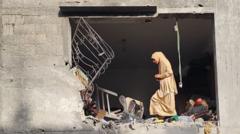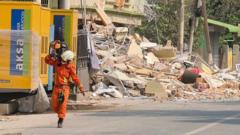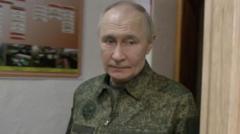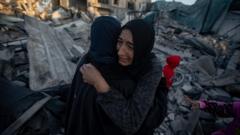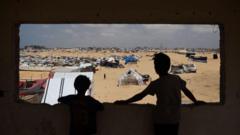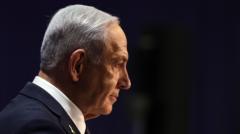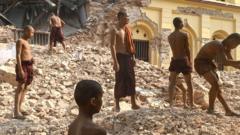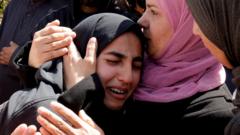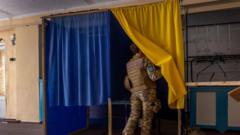At least three fatalities have been reported due to an Israeli air strike in the southern suburbs of Beirut, as confirmed by Lebanon's health ministry. This incident further complicates an already tenuous ceasefire between Israel and Hezbollah, following recent hostilities that had led to a prolonged conflict.
### Israeli Airstrike in Beirut Claims Lives, Strains Fragile Ceasefire
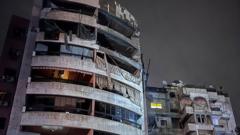
### Israeli Airstrike in Beirut Claims Lives, Strains Fragile Ceasefire
Israeli military action in Beirut results in casualties, raising concerns over ongoing tensions with Hezbollah.
The Israeli military stated that the strike targeted a Hezbollah member involved in coordinating attacks with Hamas against Israeli civilians. Despite the ceasefire established in November—meant to end over 13 months of escalated violence—attacks have continued. The airstrike took place without warning in the Dahieh neighborhood, a Hezbollah stronghold, damaging an apartment building significantly.
Lebanon's President Joseph Aoun characterized the attack as a perilous warning, while Prime Minister Nawaf Salam denounced it as a blatant violation of the agreed-upon ceasefire. In response to the airstrike, the Israel Defense Forces (IDF) justified their action by claiming they aimed to eliminate an imminent threat to Israeli civilians posed by Hezbollah operatives.
Prior to this incident, Israel had conducted airstrikes in Beirut after rockets were launched into Israeli territory, although Hezbollah maintained its commitment to the ceasefire. This ongoing pattern of airstrikes, which Lebanon’s government regards as violations, suggests that tensions remain high despite diplomatic efforts to stabilize the region.
Hezbollah's involvement and stance remain pivotal, especially as clashes resumed following the Hamas attacks on October 7, raising alarm over rising civilian casualties in Lebanon and the humanitarian implications of the conflict, which has displaced over 1.2 million residents amidst ongoing military engagements.
Lebanon's President Joseph Aoun characterized the attack as a perilous warning, while Prime Minister Nawaf Salam denounced it as a blatant violation of the agreed-upon ceasefire. In response to the airstrike, the Israel Defense Forces (IDF) justified their action by claiming they aimed to eliminate an imminent threat to Israeli civilians posed by Hezbollah operatives.
Prior to this incident, Israel had conducted airstrikes in Beirut after rockets were launched into Israeli territory, although Hezbollah maintained its commitment to the ceasefire. This ongoing pattern of airstrikes, which Lebanon’s government regards as violations, suggests that tensions remain high despite diplomatic efforts to stabilize the region.
Hezbollah's involvement and stance remain pivotal, especially as clashes resumed following the Hamas attacks on October 7, raising alarm over rising civilian casualties in Lebanon and the humanitarian implications of the conflict, which has displaced over 1.2 million residents amidst ongoing military engagements.

